Unlock the Episode: Listen and Download the Free MP3 from My Podcast Today!
SUMMARY
In the ever-evolving landscape of education, the concept of a growth mindset has taken center stage. It's a belief that anyone can achieve anything with determination and effort. In stark contrast, a fixed mindset perpetuates the notion that intelligence is unchangeable, a notion that can hinder personal and academic development. This blog delves into the fascinating world of growth mindset, offering insights from pioneering researchers and discussing its relevance in the context of online learning.
The Journey of Growth Mindset
For over three decades, researchers have explored the idea that one's attitude toward learning plays a pivotal role in shaping their intelligence. This idea, known as the growth mindset, challenges the previously held belief that intelligence is a fixed trait. Instead, it emphasizes that persistence, not innate intelligence, is the true key to success.
Pioneering Researcher: Carol S. Dweck
One of the foremost researchers in the field, Carol S. Dweck, has dedicated herself to studying growth mindsets since the 1960s. Dweck's work began with an exploration of learned helplessness, leading her to identify two distinct types of intelligence: helpless (fixed mindset) and mastery-oriented (growth mindset). Her research, which included a groundbreaking 2007 study, demonstrated the significant impact of mindset on learning.
Online Learning and Growth Mindset
The relevance of a growth mindset in online education cannot be overstated. Understanding and promoting a growth mindset among online educators and students can enhance the learning experience and lead to better outcomes. Amelia Dress's journal, "Adopting a Growth Mindset," highlights the importance of teachers embracing their own growth mindset to create a culture of learning and resilience.
Teaching Strategies for Online Educators
Online teachers play a crucial role in fostering a growth mindset in their students. Encouragement, embracing mistakes as opportunities for growth, and designing challenging yet scaffolded curriculum are some of the strategies online educators can employ to nurture a growth mindset. The blog "Teaching Kids to Struggle" provides practical ideas and activities for online teachers.
Growth Mindset Beyond the Classroom
It's not just students who benefit from a growth mindset; educators themselves can reap the rewards. The blog also explores the importance of online teachers adopting a growth mindset and using encouraging language that cultivates a growth mindset in their students.
Adult Learners and Growth Mindset
While much of the research has focused on K-12 education, the growth mindset remains relevant in the online college-level classroom. A peer-reviewed journal article by Veronica Yon suggests that adults may have different attitudes toward learning strategies based on their mindset. This information can help online educators tailor their teaching methods to meet the unique needs of adult learners.
Challenges and Controversies
While the concept of a growth mindset has gained substantial traction, it's not without its critics. Some argue that intelligence is influenced by genetic factors and cannot be wholly determined by mindset. There's also a discussion about whether students may fall on a spectrum between fixed and growth mindsets.
In the rapidly evolving world of online education, understanding and embracing the power of a growth mindset can be a game-changer. Researchers like Carol S. Dweck have provided compelling evidence of the impact of mindset on learning outcomes, while educators are finding innovative ways to incorporate growth mindset principles into their teaching strategies. Ultimately, the ability to develop a growth mindset is an invaluable skill, both for teachers and their students, helping them unlock their full learning potential and adapt to the changing demands of education in the 21st century.
INSPIRATIONAL QUOTES
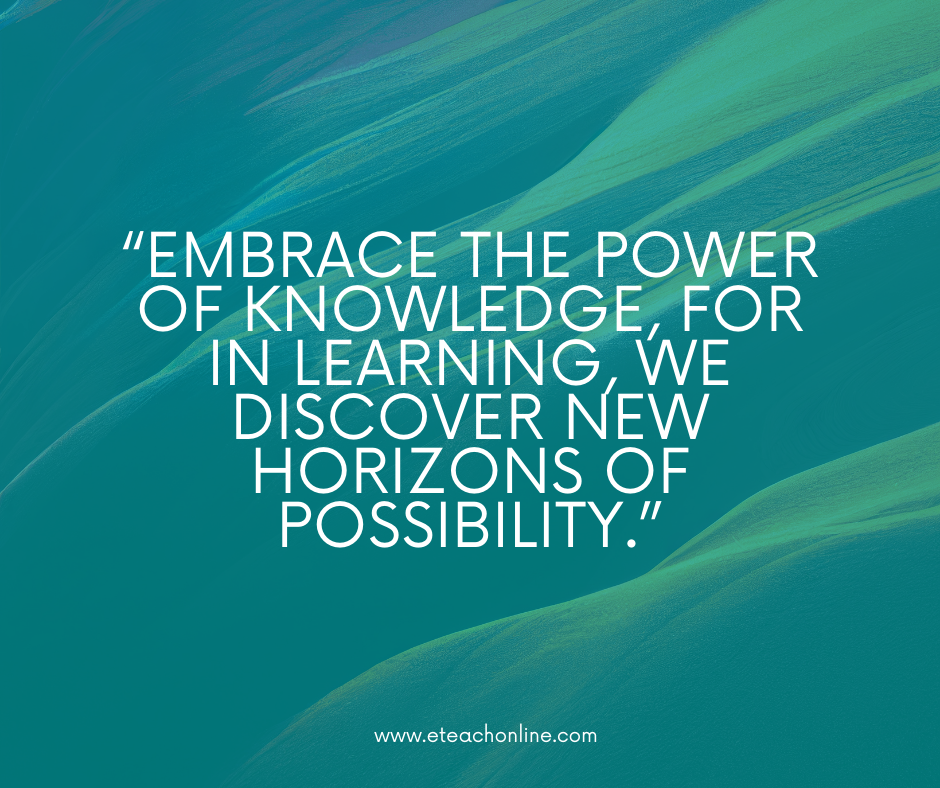
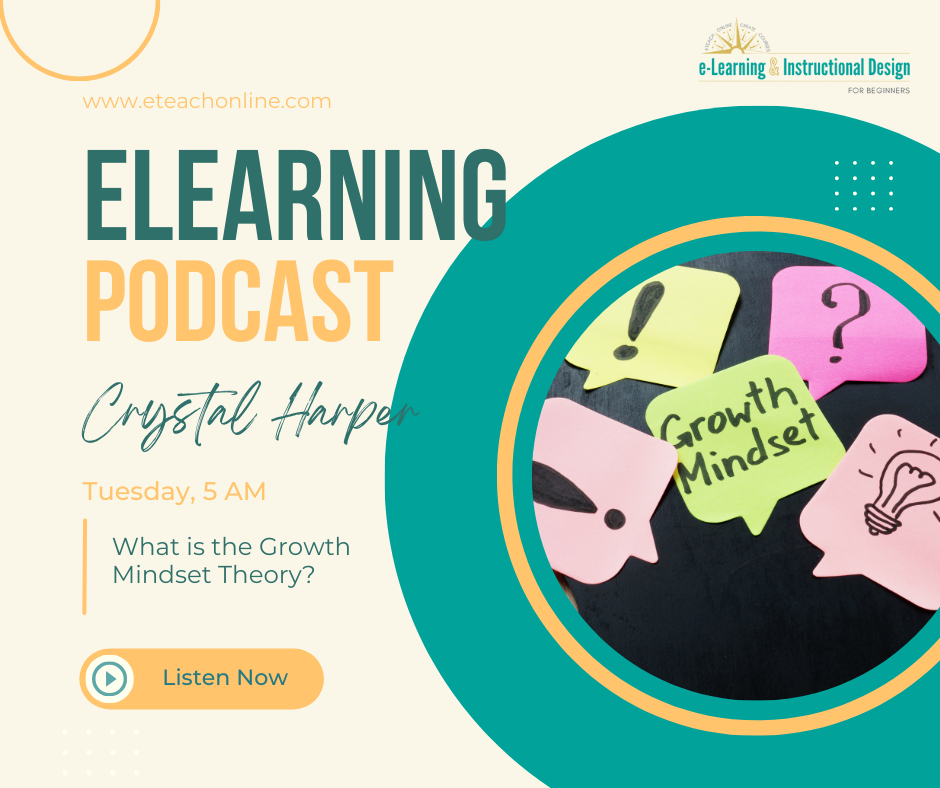
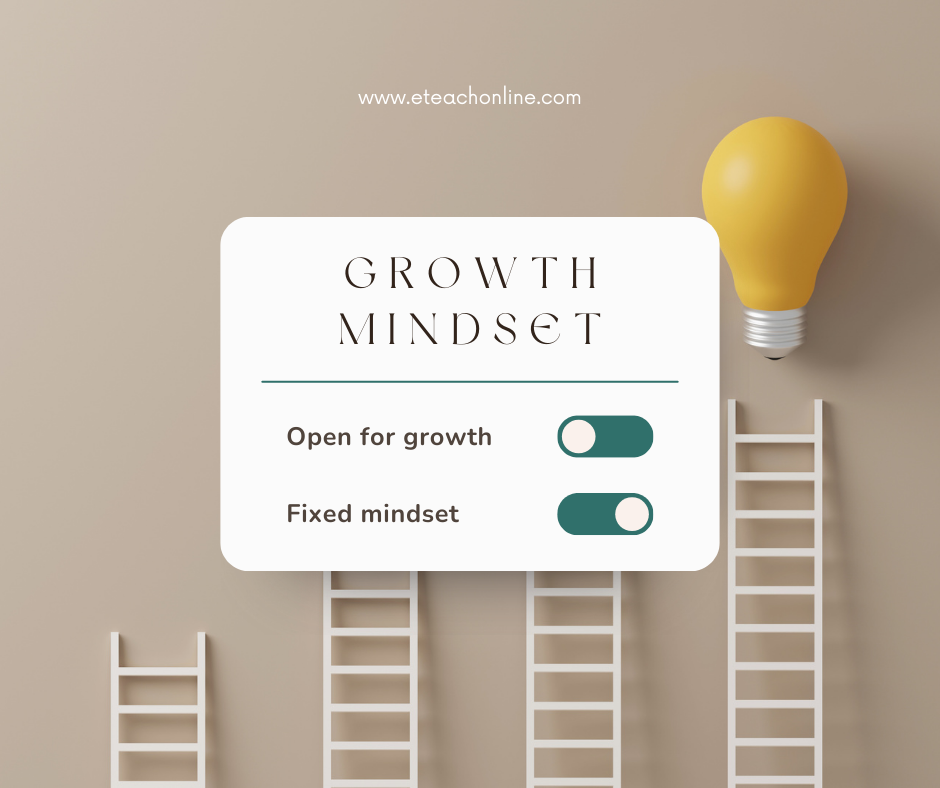
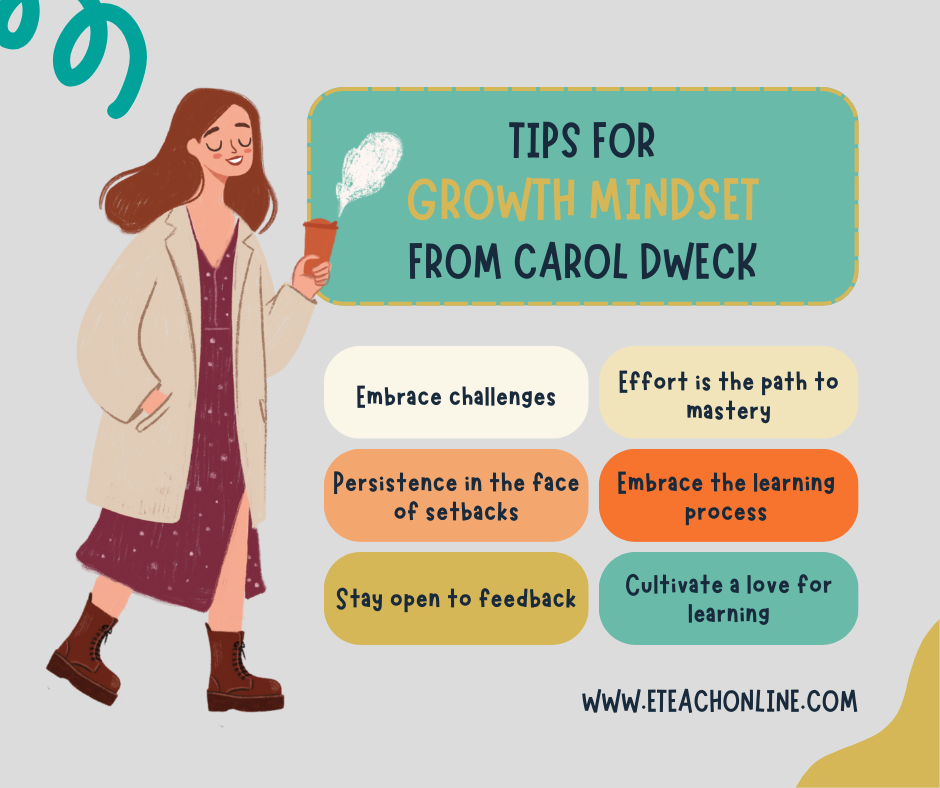
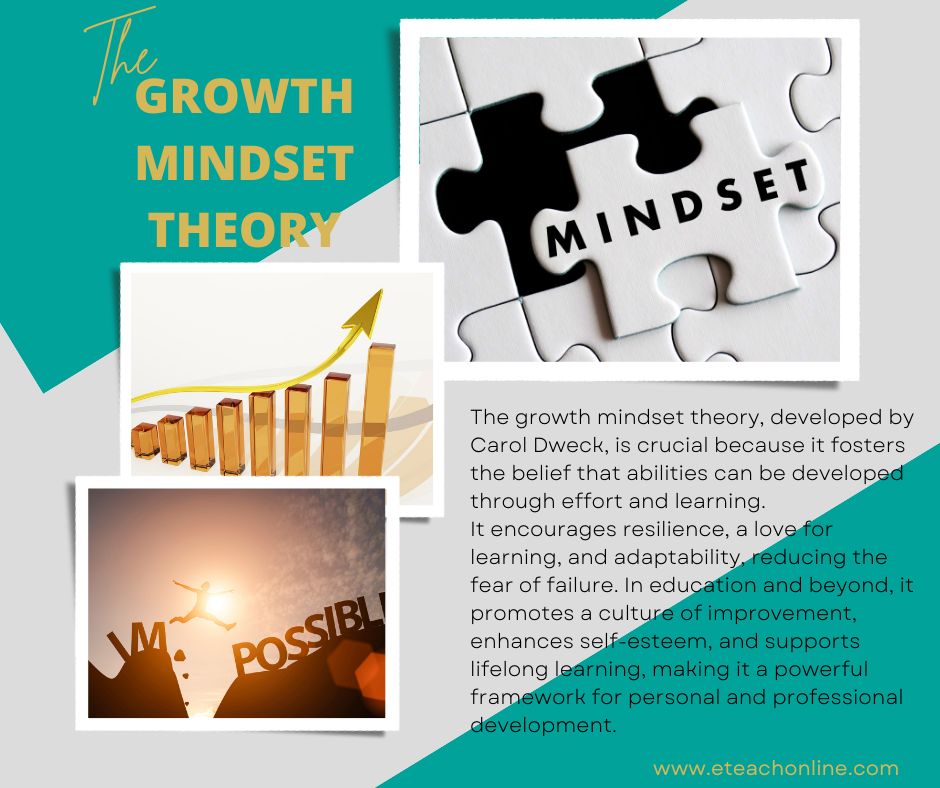
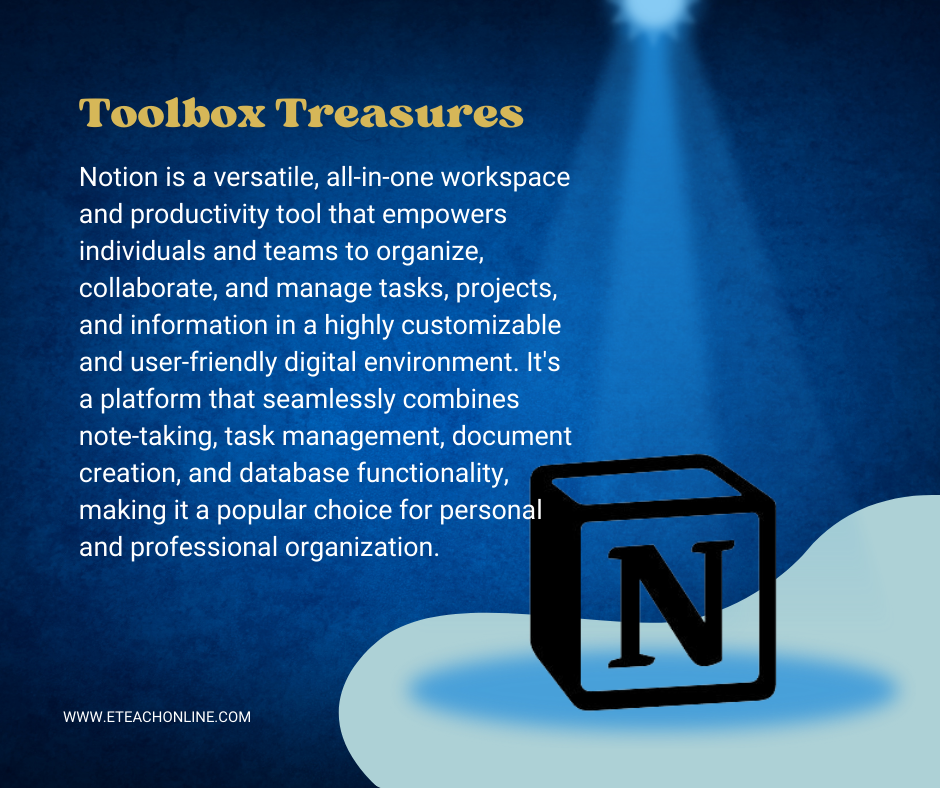
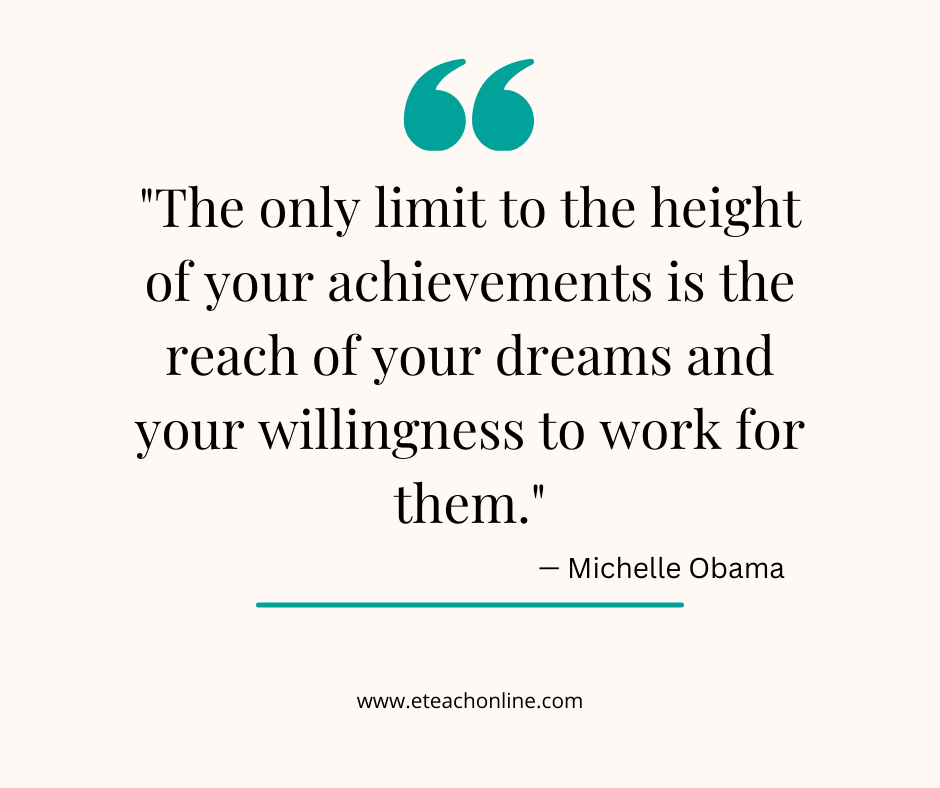
TRANSCRIPT
Hello and welcome to the eLearning and Instructional Design for Beginners podcast, where new and aspiring instructional designers start, grow, and advance their careers in instructional design and online learning development. I'm your host, Crystal Harper. I'm a former school teacher who transitioned to instructional design.
All while working full time as a single mom. Would you like to become a successful instructional designer without the burden of earning another degree? Well then let's get started. Growth mindset is the idea that anyone can do anything when they put in the effort. If a person lacks a growth mindset, they are said to have a fixed mindset, which is a belief that their intelligence is unchangeable.
Each of the articles that I review describes distinctive topics about the theory from one another. One of the researchers, Carol S. Dweck, has been vastly studying growth mindset since the 1960s. Three other reliable research articles are discussed within this recording. In addition, I express my own personal reflection of the topics and why it is related to online learning.
For over three decades now, researchers have studied the idea that people's attitudes of learning are what truly determine one's intelligence. This idea is known as growth mindset. People used to believe that our intelligence is fixed. Although, current research has shown that this type of thinking stunts the true potential of growth in their minds.
Researchers now say that persistence, not intelligence, is the key to success. The following four journal articles will help online teachers better understand this immensely studied theory of aptitude. In one of her recent journal articles, Raising Smart Kids, Carol Estewak explains that she has been investigating human motivation since the 1960s when she was a psychology graduate student at Yale University.
She began researching the idea of learned helplessness. She wondered, why do some students give up when they encounter difficulty, whereas others who are no more skilled continue to strive and learn? After several years of working in the classroom, Dweck discovered a broader view that students can have one of two types of intelligence.
She labeled them helpless and mastery-oriented. Helpless students believe that intelligence is a fixed trait. Also known as a fixed mindset. These types of students avoid challenges to avoid looking less smart. On the other hand, mastery-oriented children believe that intelligence can be developed through a hard, through hard work and dedication.
These types of students are more likely to outperform the students with a fixed mindset. Dweck validated these viewpoints. In a 2007 study that she was involved in, she and two of her colleagues monitored 373 students for two years during their transition to middle school. When work and grades begin to have higher stakes.
As we predicted, the students with a growth mindset felt that learning was a more important goal in school than getting good grades. The students who held a fixed mindset, however, were concerned about looking smart with less regard for learning. Dweck also helped design an 8 session workshop for 91 students whose math grades were declining in their first year of middle school.
27 percent of the students that were given growth mindset training began to bounce back their earlier levels, whereas only 9 percent of the students in the control group began to show improvement. The fact that Dweck has been actively researching the topic of learned helplessness since the 1960s in her own classrooms shows much strength in her findings.
In a 2014 TED Talk, she speaks much of the topic in her research.
Dweck also uses large populations as well as longitudinal studies providing reliability to her research. One thing I noticed is the fact that she displays the two intelligences in such black and white terms. She doesn't explain the possibility that many students could fall somewhere in between the two mindsets.
Some may also argue that smartness cannot be fully determined by one's own mindset. Some people still hold the traditional beliefs that intelligence is fixed and genetics plays a big factor on how smart a person is. Dweck has a few podcast episodes where she explains the theory. She also discusses her book called Mindset, as well as how one can develop their own mindset.
It can sometimes be challenging for online teachers to connect with their students if they aren't using effective research based learning techniques. Understanding the theory of growth mindset is essential for e teachers to be the most effective teachers that they can be. Adopting a Growth Mindset, a journal written by Amelia Dress, found that it is particularly important for online teachers to understand the idea of growth mindset for themselves as educators.
Even skilled online teachers need to be willing to make mistakes on a regular basis. They should accept these mistakes as learning opportunities. This idea is equally important for optimal progression within their students in the online classroom. Specifically, Druss states that the way in which teachers approach a lesson to their students can make an immense impact on the students perceptions on how well they would do on an assignment.
Before reading a book with new vocabulary, a teacher might say, Let's see which of these words you already know. This is a vastly different statement from Let's see which of these words you know. The small addition of the word already implies that knowledge will change. When developing content for your online classroom, keep this idea in mind.
Now let's discuss growth mindset versus a fixed mindset in adulthood. It's also essential for teachers in the online college level classroom to ensure that they are aware of growth mindset in their adult online students. Here's a peer reviewed journal article titled Habits and beliefs that guide self regulated learning, do they vary with mindset?
Written by Veronica Yon, was evaluated. The researchers wanted to examine whether individuals in the older and broader population might have different viewpoints in how They ought to study and learn. The main goal of this study was to determine how ones attitudes towards learning strategies related to their theory of intelligence.
The article reviewed that growth theorists are more likely than fixed theorists to hold mastery rather than performance. Conversely fixed theorists tend to believe that ability itself is sufficient for learning and effort merely reflects a lack of ability. The study included several statements that related to people's motivation to learn.
Results indicated that fixed theorists were more intrinsically motivated to learn, whereas growth theorists were more motivated by extrinsic factors. This could be helpful in the online learning environment in that when designing online curriculum, teachers must take these findings into account. For example, online teachers could conduct surveys on their students to see where they stand on their idea of growth mindset.
Growth mindset has particularly been of interest to me specifically because I had never heard of the topic until becoming a teacher. To be honest, I used to have a more traditional view of the theory and had always thought that one's intelligence was the strongest indicator on how well individuals do in academics and other aspects in their lives.
I believe that it is particularly important for online teachers to have a full understanding of the two mindset theories. It should be your goal to bring out the full potential in all students in the online classroom. When designing content for your online courses, it's important to use vocabulary with your students that drives them to develop more of a growth mindset as opposed to a fixed one.
Online teachers should plan to practice statements of encouragement with their students to help them develop their own growth mindsets. Teachers also need to understand how to help their online students learn to struggle. Curriculum online should be designed in a scaffolding manner so that students are continuously being challenged and learn to work more independently.
Check out the blog, Teaching Kids to Struggle. This blog gives online teachers multiple ideas. And activities on how to teach their students to feel comfortable with struggling. In conclusion, growth mindset is continuously being studied today, even more so than it was 30 years ago, and is extremely valuable knowledge for online teachers to be more effective with teaching.
Out of a multitude of research that has been done, this two-part blog post summarizes and reviewed four different scholarly journal articles. Researchers are constantly developing more knowledge on the theory that is helping online teachers and their students to access their full learning potential.
It can sometimes be challenging for online teachers to connect with their students if they aren't using effective research-based learning techniques. Understanding the theory of growth mindset is essential for e-teachers to be the most effective teachers that they can be.
JOIN THE
eLearning and Instructional Design for Beginners Community
- In-depth courses & training
Access my rapidly growing library, attend monthly live training & accountability support groups
- Exclusive tools & members-only discounts
Tools, templates, downloads, checklists and more - plus receive special perks & discounts
- Supportive community & network
Feedback and support from fellow instructional designers, career-driven business owners, and experts who will keep you on track
Get Your Software Toolkit for Instructional Designers
Tools & processes that will help you plan, build, and grow your instructional design career and freelance business.



